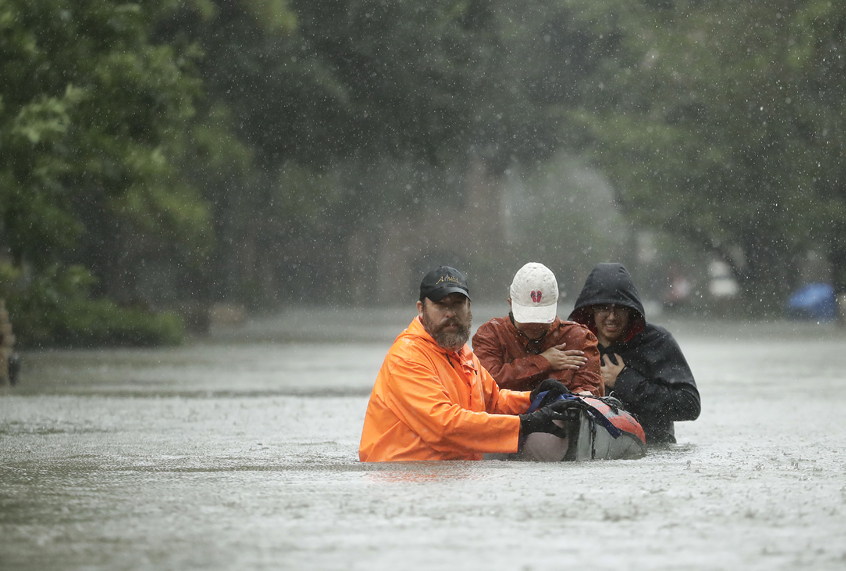Although it first slammed into the Texas coast on August 25, the toxic mess wrought by Hurricane Harvey is still being cleaned up — and unearthed.
More than a half-year after floodwaters engulfed Houston, America’s fourth-largest city, it seems that Harvey’s toxic legacy is far more widespread than authorities reported at the time. That’s according to records pieced together in collaboration by The Associated Press and The Houston Chronicle, which reveal more than 100 cases of chemical spills, leaks and catastrophic gas releases reported in the storm’s aftermath — a majority of which were either never publicized or initially understated.
“The public will probably never know the extent of what happened to the environment after Harvey. But the individual companies of course know,” Rock Owens, a supervising environmental attorney for Harris County, home to Houston and 4.7 million residents, told the AP-Chronicle.
Harvey’s touch down in late August caused severe wreckage to numerous chemical plants and oil refineries, including one incident in which half a billion gallons of industrial wastewater mixed with storm water spilled out of a chemical plant in Baytown, east of Houston, and into nearby areas.
“Benzene, vinyl chloride, butadiene and other known human carcinogens were among the dozens of industrial toxins released into surrounding neighborhoods and waterways following Harvey’s torrential rains,” the AP-Chronicle reports.
The AP-Chronicle also reveals that “only a handful of the industrial spills have been investigated by regulators.”
Samuel Coleman, the Environmental Protection Agency’s acting regional administrator during the hurricane, said the agency’s focus in the immediate aftermath was “addressing any environmental harms as quickly as possible as opposed to making announcements about what the problem was.”
Looking back on the situation, Coleman told the reporters it might have not been a bad idea to tell the public about the worst of “dozens of spills.”
“People are left in a state of limbo of not knowing if they were exposed or not — or if they were, what the implications are for their health,” Dr. Nicole Lurie, who oversaw federal public health responses to both Hurricane Sandy and the Deepwater Horizon oil spill while at the U.S. Department of Health and Human Services, told the AP-Chronicle.
Despite the new revelations, many questions about the long-term impact of Hurricane Harvey on human health remain unanswered.

